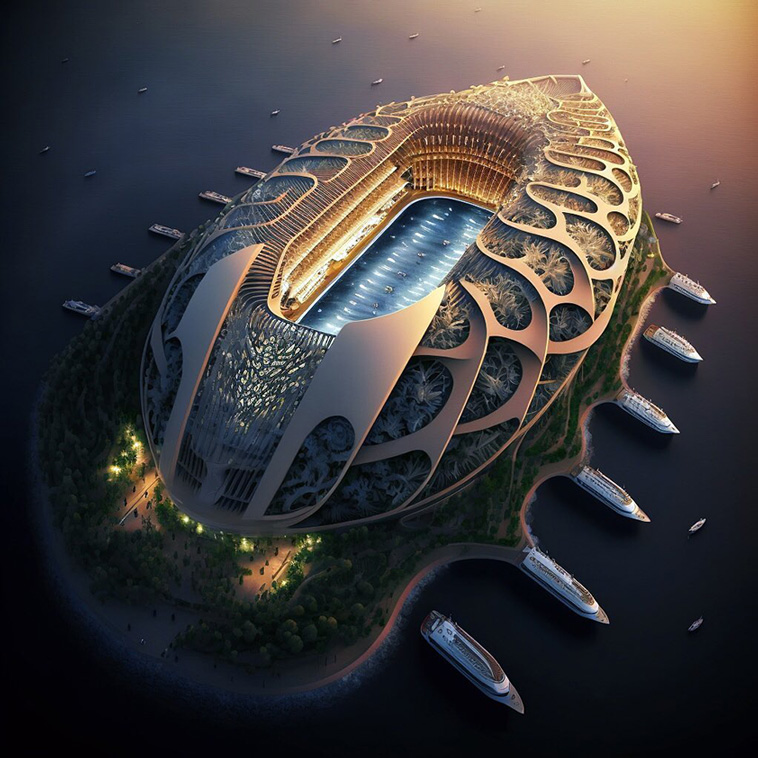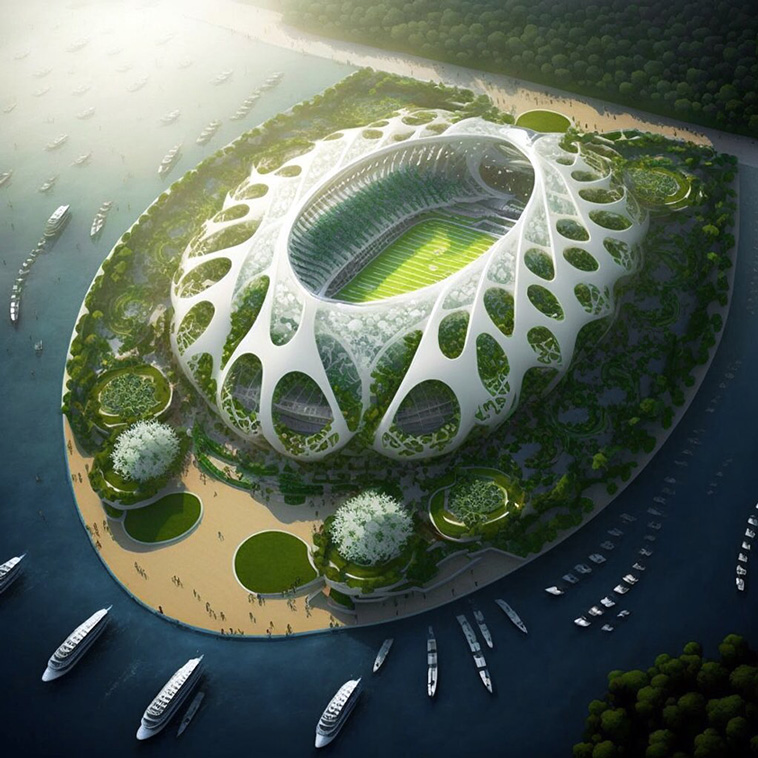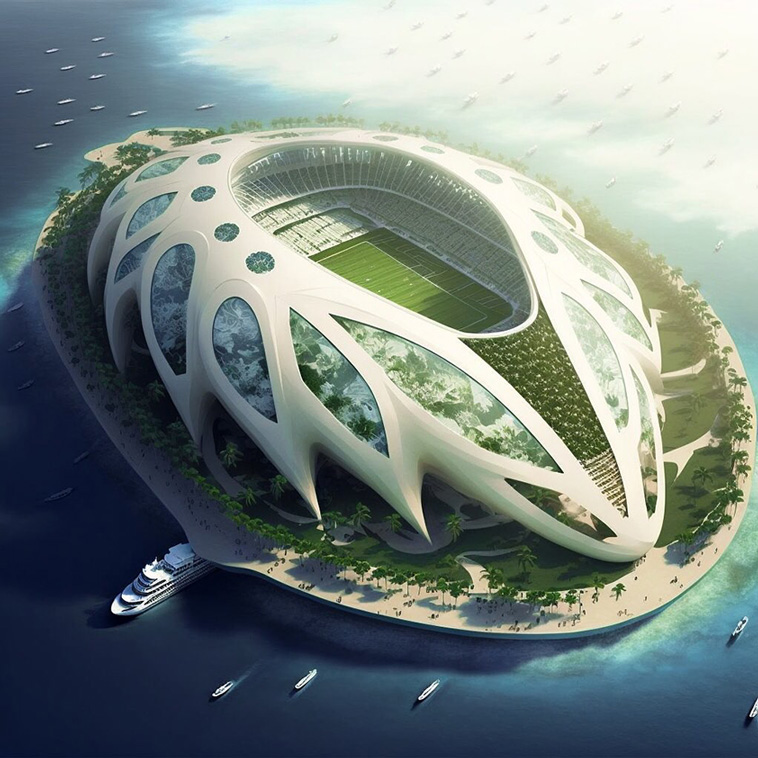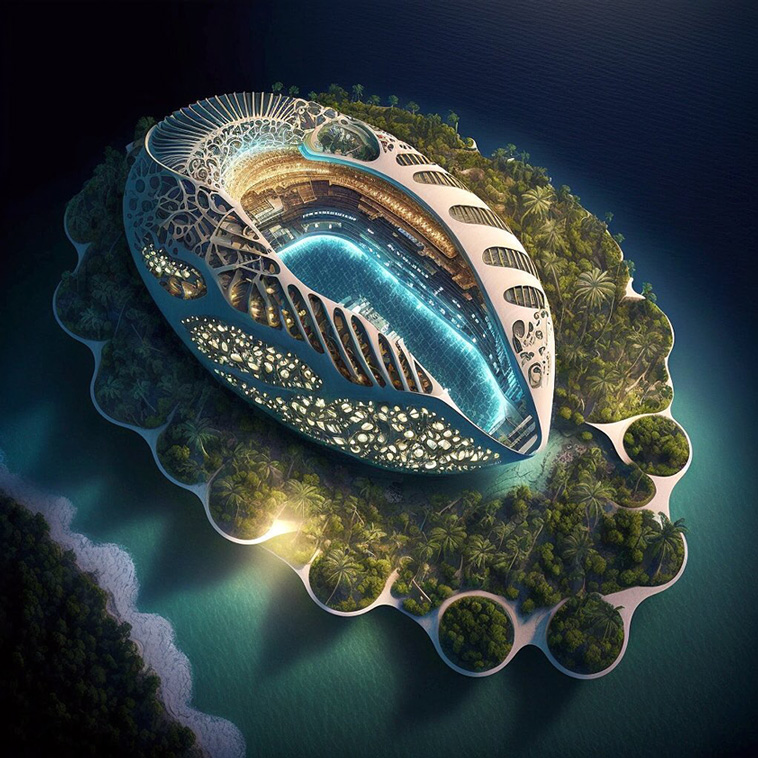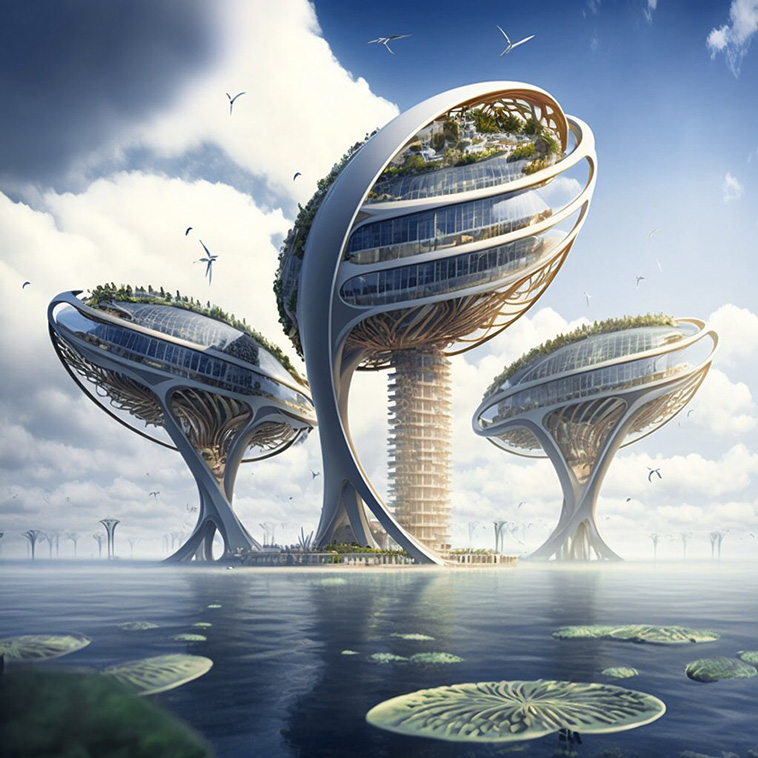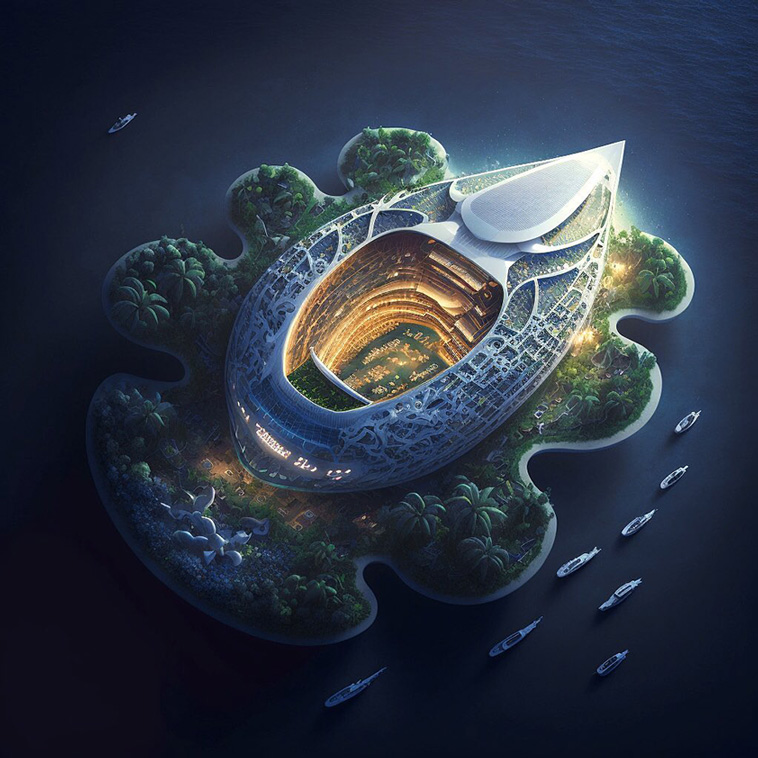Vincent Callebaut Architectures designed the OCEANIUMS project which is a biomimetic generation of floating and sustainable stadiums. Vincent Callebaut Architectures: Rather than perpetually building new stadiums for each new World Cup and Olympic Games, we propose to build cultural and sports hubs intended for nomadism at sea. Half boat, half stadium, these low-carbon community hubs would navigate thanks to renewable energies by using solar radiation and the strength of the prevailing winds, as well as the cold ocean currents of Labrador and the warm Gulf Stream. In this nomadic vision of new sporting and cultural practices, it is no longer the supporters who go to obsolete stadiums but sustainable and ecological stadiums that go to the supporters.
OCEANIUMS provides a new approach to the stadiums with its biomimetic and sustainable feature
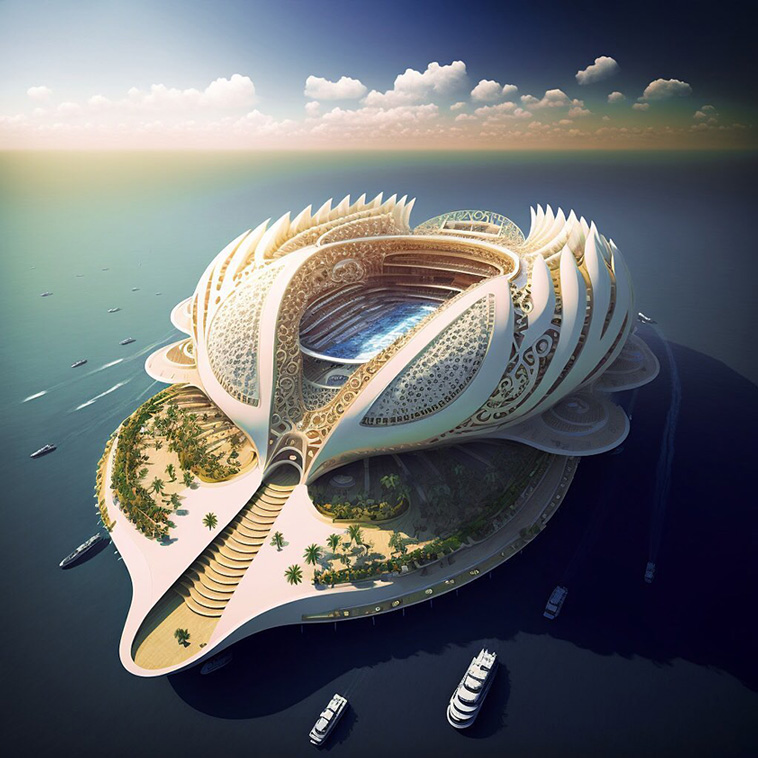
These Oceaniums, true stadiums of the oceans, would be built using only biosourced and recycled materials such as solid wood, recycled aluminum, green algae and plastic waste from the 7th continent concentrated in the five oceanic gyres. This plastic waste would become new construction materials feeding 3D printers connected to human-orchestrated artificial intelligence processors. The development of a multitude of algorithms and especially the predictive learning offered by AI and 3D printing make it an essential tool for limiting human risks on these future augmented construction sites.
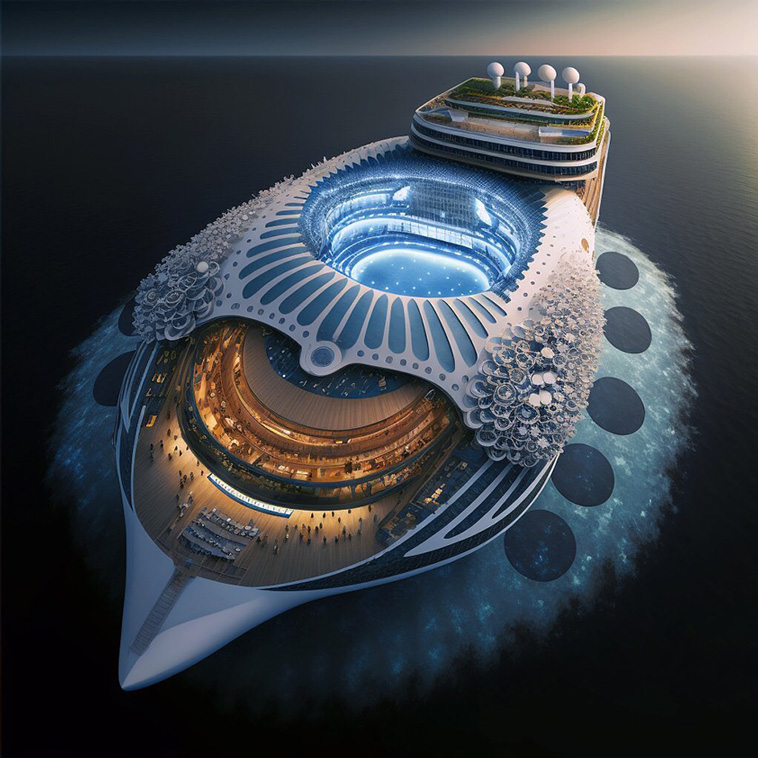
Architecturally, the organic geometries of these floating stadiums are inspired by biomorphism, their optimized structures by bionics and their ecosystem life cycle by biomimicry. Resembling coral reefs in the process of calcification, skeletons of cetaceans filtering seawater and bioluminescent organisms, they are havens of biodiversity dedicated to the flourishing of ocean flora and fauna. During the World Cup in Qatar, our ambition is to transform the constraints of our time into an opportunity to invent a new ecology of sport based on the circular economy – which aims to be regenerative, where nothing is lost, nothing is created, everything gets recycled. A virtuous economy where waste and pollution are transformed into resources and debts into solidarity. The gradual abandonment of fossil fuels for the sole benefit of renewable energies will boost the development of ocean-energy technologies and tidal power, as well as scientific research around marine biomimicry. Long live sustainable sport, respectful of the planet, humanity and biodiversity!
